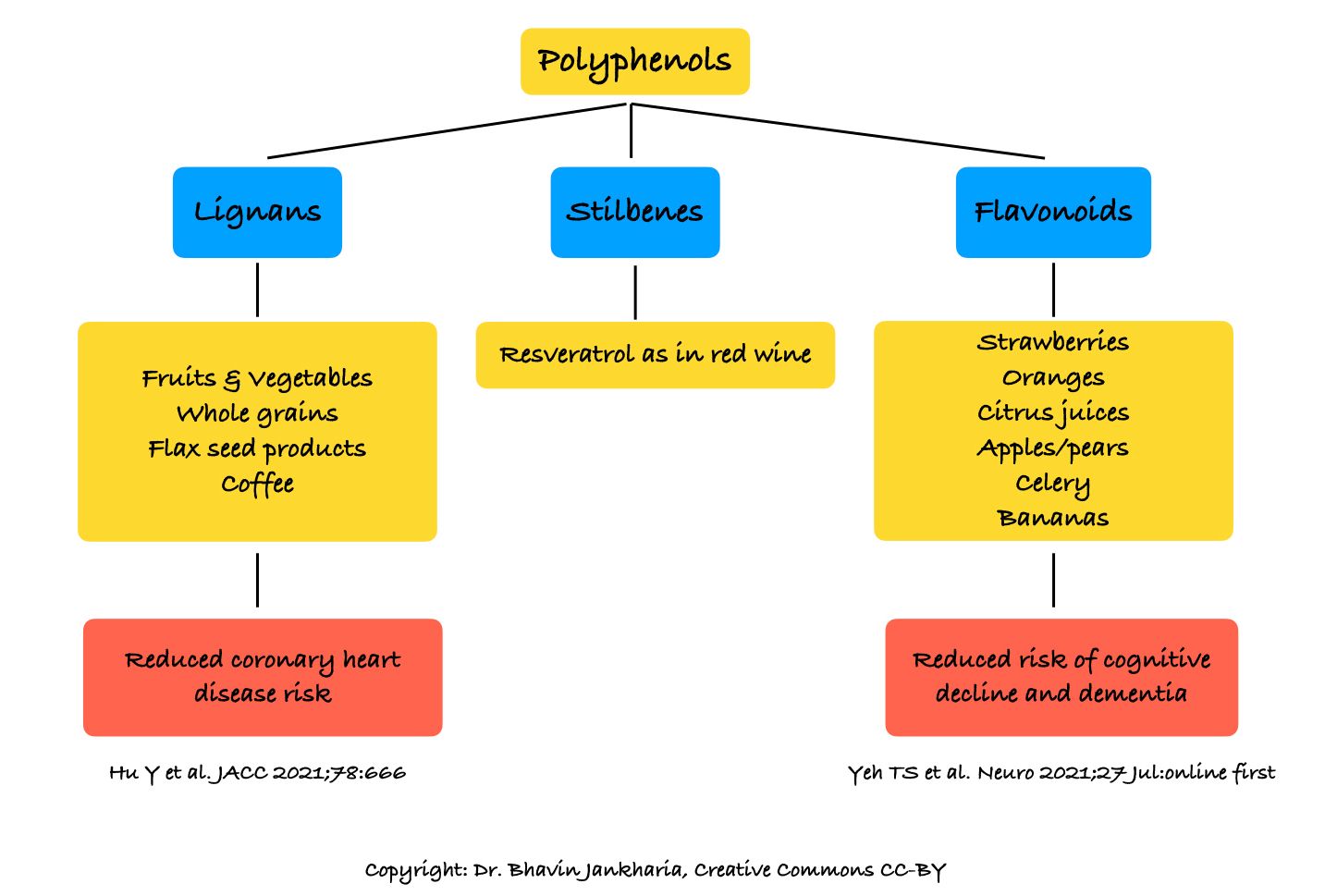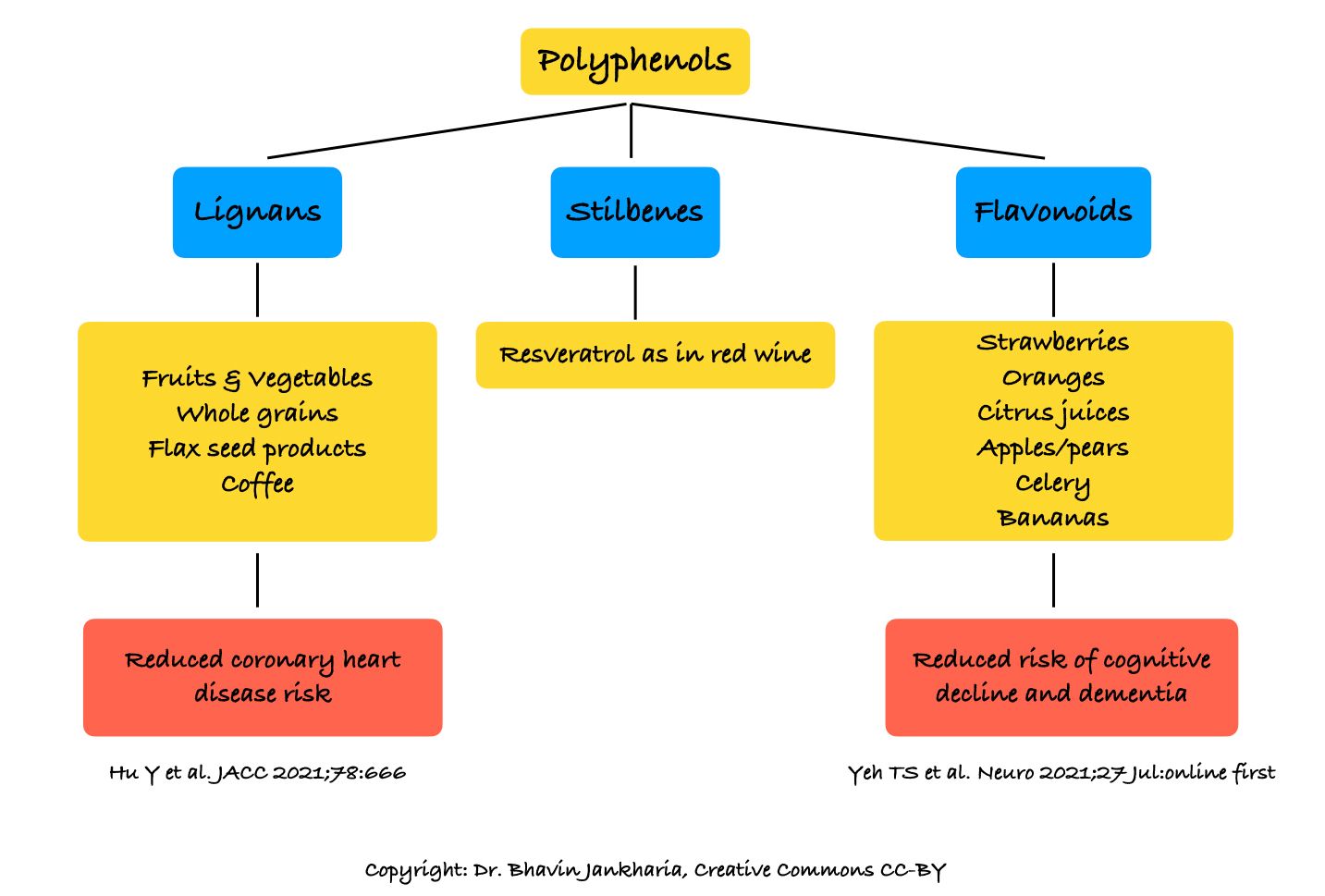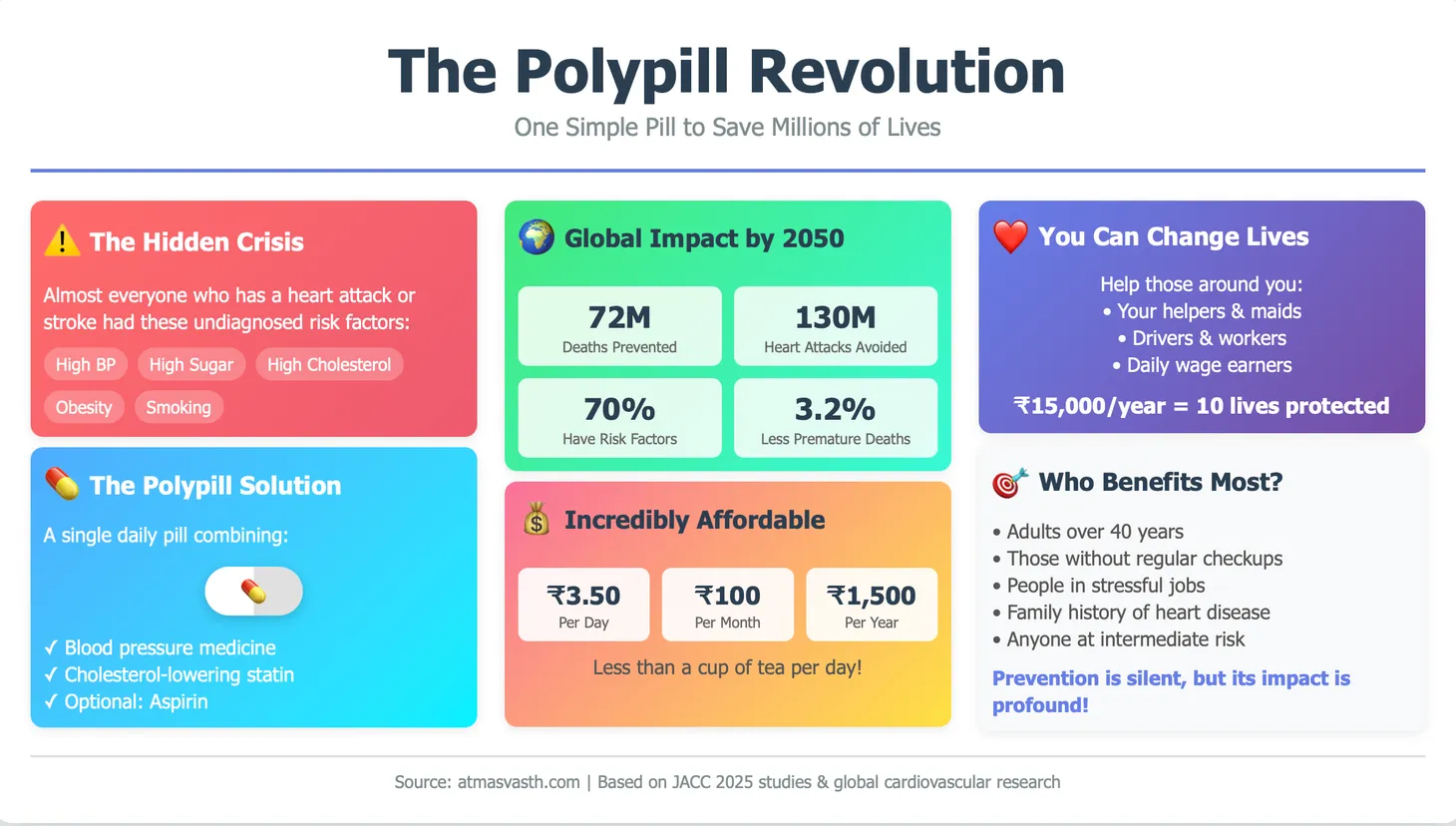Polyphenols, Cardiovascular Risk and Cognitive Decline
Foods rich in polyphenols reduce coronary heart disease risk and cognitive decline and dementia

Polyphenols are naturally occurring compounds in plants that have health benefits. Taking off from last Sunday’s post and podcast on the super-rubbish of superfoods, it goes without saying that there is no single item of food that by itself can improve our health and longevity as a superfood in our atmasvasth quest.
This post is free to read, but you will need to subscribe with your email ID to read the rest of the post.
Two studies in the last week have shown that foods rich in polyphenols reduce cardiovascular and dementia risk respectively, further telling us the same thing; a balanced plant-based diet rich in vegetables and fruits makes a difference.
The broad classes of polyphenols [1] include phenolic acid flavonoids (flavones, flavonones, athrocyanins), stilbenes (like resveratrol found in red wine) and lignans.
The first by Yang Hu and colleagues [2] found that a long term intake of foods rich in lignans was associated with a significantly lower risk of coronary heart disease. The second study headed by Tian-Shin Yeh and colleagues [3] found that a regular intake of high flavonoid content food was associated with reduced cognitive decline and rate of dementia.
Both studies are from Harvard but from different groups, looking at the same cohorts - the Nurses Health Study and the Health Professionals Follow-up Study.
Lignan containing foods include whole grains, fruits/vegetables, flax seed products and coffee. Flavonoid containing foods include strawberries, oranges, grapefruits, citrus fruits, apples/pears, celery, bananas….basically fruits and vegetables.

We have seen earlier that an intake of up to 5 portions of fruits and vegetables reduces the risk of cardiovascular events and death. What Yang Hu and colleagues have shown that perhaps among other reasons, one might be the presence of lignans. Similarly , while physical activity helps with reducing cognitive decline, perhaps a food plan consisting of plants and vegetables also helps.
An article by Perez-Jimenez and colleagues [4] lists the top 100 food items rich in polyphenols with cloves at the top followed by dried peppermint, the last being rose wine.
But again, the idea is not to single out individual food items rich in polyphenols, but to go with a varied, multi-colored, fruit and vegetable based plan, to reduce both, cardiovascular risk and cognitive decline, to live long, healthy.
Footnotes
1. Jenkins DJA et al. Plant Polyphenols Lignans and Cardiovascular Disease. JACC 2021;78,679
2. Hu Y et al. Lignan Intake and Risk of Coronary Heart Disease. JACC 2021;78:666
3. Yeh TS et al. Long-term Dietary Flavonoid Intake and Subjective Cognitive Decline in US Men and Women. Neurology 2021;July 28:online first
4. Perez Jimenez J et al. Identification of the 100 richest dietary sources of polyphenols: an application of the Phenol-Explorer database. Eur J Clin Nutrition 2010;64:S112
Atmasvasth Newsletter
Join the newsletter to receive the latest updates in your inbox.


